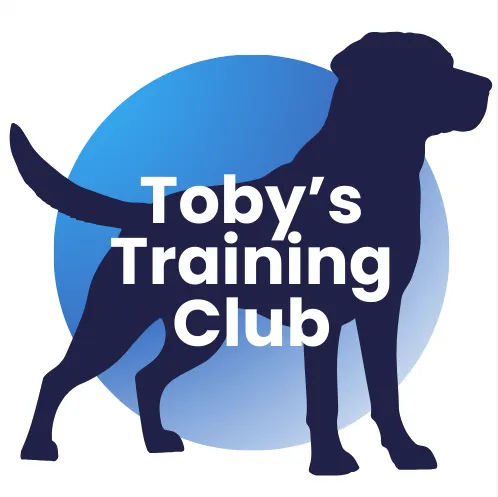How Does Rewards-Based Training Work?
Positive, Rewards-Based training is the popular ethical choice for many dog owners today, but what really is it and how does it work?
Benefits of Using Rewards-Based Training
These are a few of the pros of using training rooted in Positive Reinforcement, rather than methods relying on other sections of the quadrant, including punishment-based methods.
What is Positive Reinforcement?
For many years, dog owners all over the world have been training their dogs using techniques that came from a variety of sources. When we work with dogs, we use methods that form part of a 'quadrant' - this quadrant covers everything from praise and rewards to physical punishment. Rewards-based training focuses on one section of this quadrant - Positive Reinforcement.
Positive Reinforcement = adding something that the dog finds rewarding as a way of motivating the dog to repeat a certain behaviour. So in other words, if I give my dog a treat every time she does something I like, she's going to be much more likely to repeat that behaviour again in future to earn more treats! Nb: treats are far from the only thing we can use as reinforcement, essentially anything your dog likes could be used for reinforcement! This could include play with toys, sniffing or scentwork, praise and attention, meeting people or other dogs, or even something as simple as giving them their food bowl or opening the back door to let them outside.
How Does it Work?
This format of rewarding and reinforcing desired behaviour is rooted in science and psychology - if you do a quick google search, you'll find that it's a theory that is also widely used within human psychology; it's not just reserved for training animals!
You can think to your own life for examples of how Positive Reinforcement works - if your boss were to give you a small bonus each time you completed a certain task, surely you'd be more likely to repeat that task whenever possible? Likewise, if all of you work is continually reinforced through praise, you'll likely be more motivated to keep working well.
In contrast, if you don't receive acknowledgement for good work but instead only receive reprimands for poorer work, and in fact are given penalties like docked pay, docked hours, or reduced workplace privileges, you're surely less likely to want to keep working at all, and what work you do complete is going to be less consistent and probably not as good overall.
The Key Building Blocks
Training dogs ultimately needs to boil down to communication and building trust. We're working with animals who have no way of understanding the wider context of what we're asking them to do - they don't know why we want them to sit all the time, or why it's important to come back when we call, so it's up to us to help them to at the very least understand clearly:
1) What we want them to do (ie. Communicate)
2) Why it's in their interest to do it (ie. Motivate)
So, when you work with me, we'll always be utilising this framework of communicating with and motivating your dog to help them learn various skills and behaviours, and to get them repeated reliably.
Don't just take my word for it...
Here's what my clients have to say after working using these methods to solve issues from pulling on the lead to puppy biting and more!

Tyrone

"Toby helped teach us the language of dogs, leading to positive changes in our behaviour and in our puppy, which has made a huge difference in our lives. Toby is patient, calm, and friendly. He is always helpful and takes time to listen to your concerns. Toby has a deep understanding of dog behaviour and can effectively communicate to humans how to interact with their pets."

Brooke

"Toby Duncan- patient, kind, gentle, knowledgeable, and Surreys very own dog whisperer! What a fantastic start for our beagle, Sunnie. We have learnt incredible techniques and lessons to help Sunnie thrive into adolescence. Toby has always been there to support us when things have been tricky with a teething, stubborn and very mischievous pup. We have seen a huge difference in our boy and this is all thanks to Toby,"

Jon

"Toby is an excellent trainer! We really enjoyed our lessons with him - and learnt a lot! As well as teaching us the basics of puppy training, Toby gave us lots of 1-2-1 time and advice. His tips on how we could get our puppy to sleep through the night were a godsend!"

Results for life
Rewards-based training helps to generate skills and behaviours that your dog will learn and utilise throughout their lifetime

Stronger relationship built on trust
Working together towards achieving mutually beneficial goals creates a better bond than other methods of training rooted in punishment or ideas around 'dominance'

Fun for the entire family
Rewards-based training is something that anyone can get involved with, from young kids to older family members, it's fun, accessible, and rewarding all round

Simple and easy to start any time
It's never too late or too early to get started on your training, and even if you've previously trained using other methods, you can begin using rewards-based training at any time and still see all these great benefits!
Want to chat to me about my methods?
Book your FREE Discovery Call!
You'll get to pick a 10 minute slot to chat with me over the phone, and as part of this discussion I'm always happy to talk through how my training works.
© 2025 Toby Duncan Dogs. All rights reserved.
















Facebook
Instagram
Youtube
WhatsApp